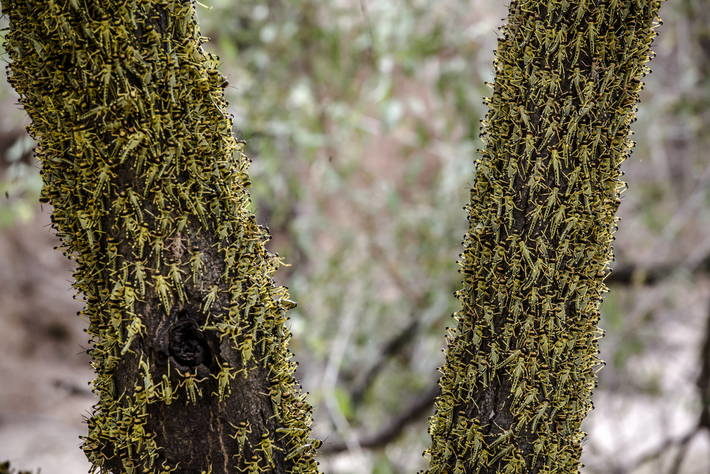ROME, ITALY — With the continued surge of desert locusts in East Africa the United Kingdom has donated £17 million to the Food and Agriculture Organization of the United Nations (FAO) to combat the potentially devasting impacts.
A 1 km2 swarm of desert locusts is able to consume the same amount of food in one day as 35,000 people, the pest poses an immediate threat to food security and long-term resilience of millions of ag producers.
The funds come via the United Kingdom’s Department for International Development (DFID) and are in addition to a previous contribution of £8 million donated earlier this year for the desert locust appeal. The contribution from the United Kingdom will scale up ongoing efforts in East Africa, Yemen and Southwest Asia. DFID dedicated an additional £1 million to supporting several institutions, including the University of Cambridge to establish tools, technologies and partnerships needed for effective pest surveillance, forecasting and early warning activities.
“We are once again grateful to the United Kingdom for their consistent support, which will go far helping to safeguard the food security and livelihoods of vulnerable farmers and their families in Africa and Asia threatened by desert locust,” said QU Dongyu, director general of the FAO.
The FAO is utilizing governments and other partners’ capacities in affected countries with surveillance and coordination, technical advice, supplies and equipment. The UN agency also is providing farmers with livelihood packages, including veterinary care and feed for vegetation-starved livestock, and assisting families who have lost their crops with cash and farming inputs.
With the FAO’s support, 1.3 million tonnes of crops have been protected. Yet the surge shows no sign of slowing across the Horn of Africa.
According to the FAO’s desert locust hub, there is still a serious risk of swarms migrating from the Horn of Africa to West Africa, India and Pakistan. Heavy spring rains across most of East Africa only led to better breeding conditions for the pest, with the next generation swarms potentially even larger than the ones currently being dealt with.
“Although substantial gains have been made in the fight against the desert locust, sustained support is critical to contain the threat,” Qu said. “Capacity to detect desert locust early enough is crucial, including through the use of technologies and partnerships, and for that we must work together.”
The FAO’s latest desert locust appeal is for $311.6 million to deal with the upsurge, covering the Greater Horn of Africa, Yemen, West Africa, the Sahel and Southwest Asia. So far, $182 million has been received or committed to the appeal. This leaves a gap of $129.6 million.
The FAO warned without additional funding, control efforts could slow down or halt by late September or October, potentially allowing the numbers of the crop-devouring pest to explode again in some places.




